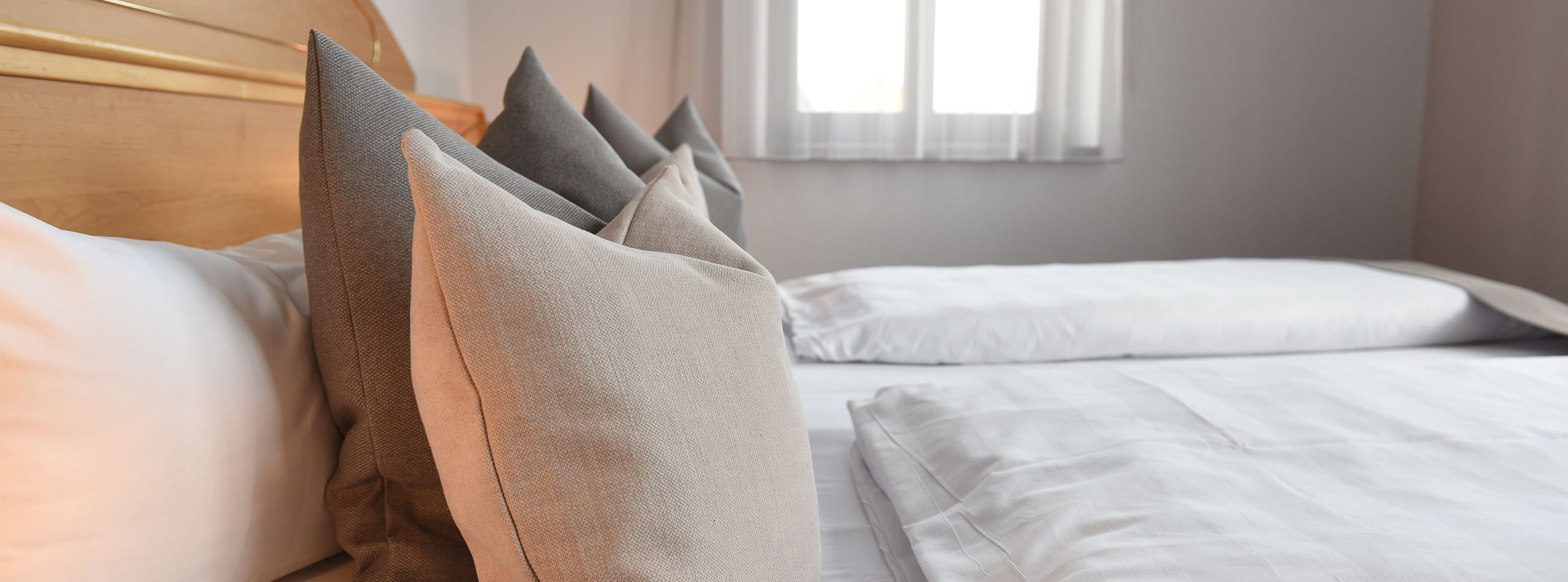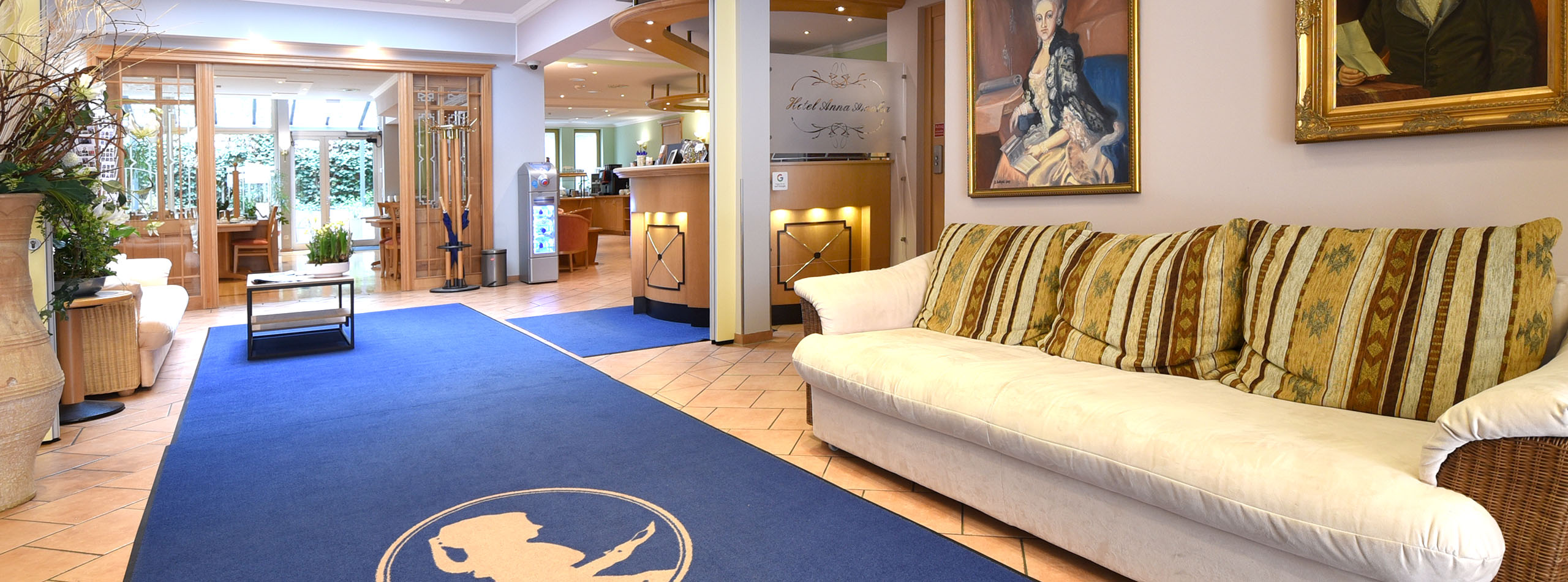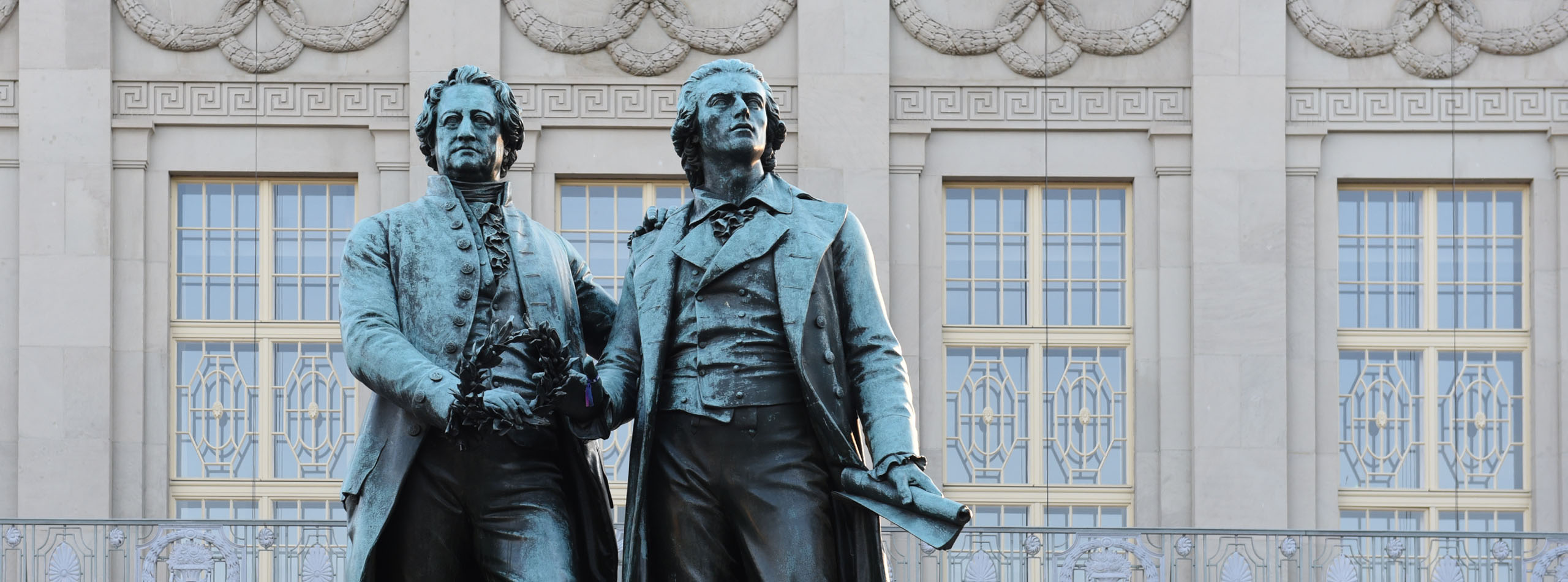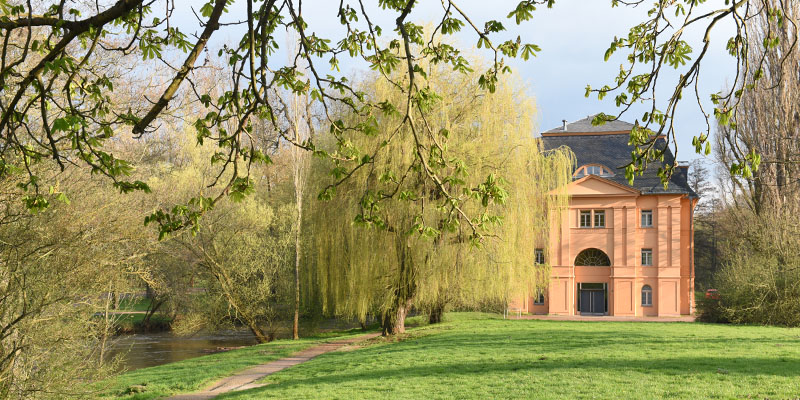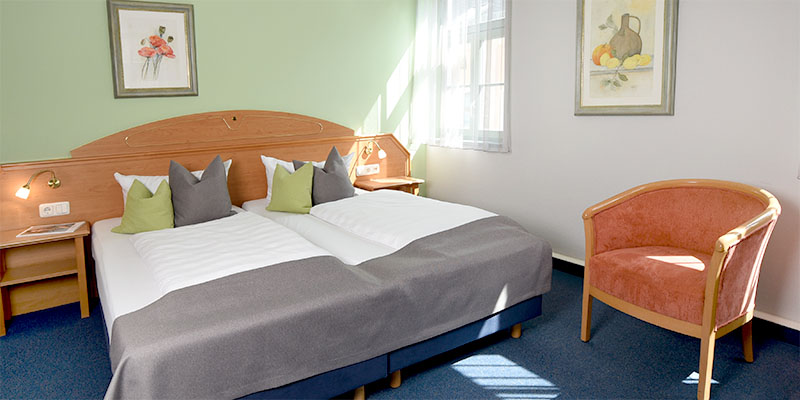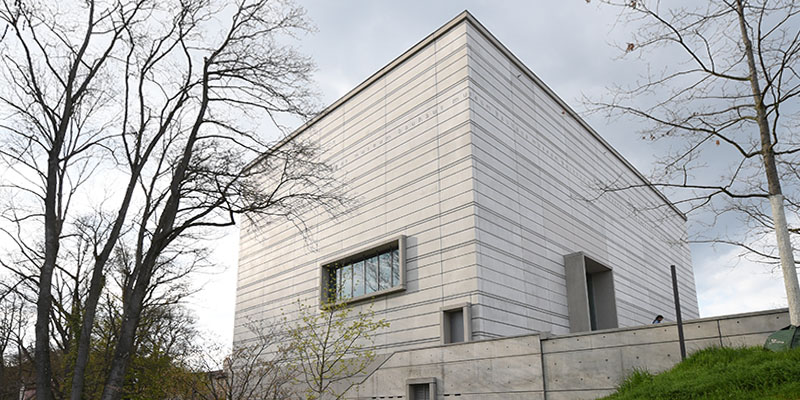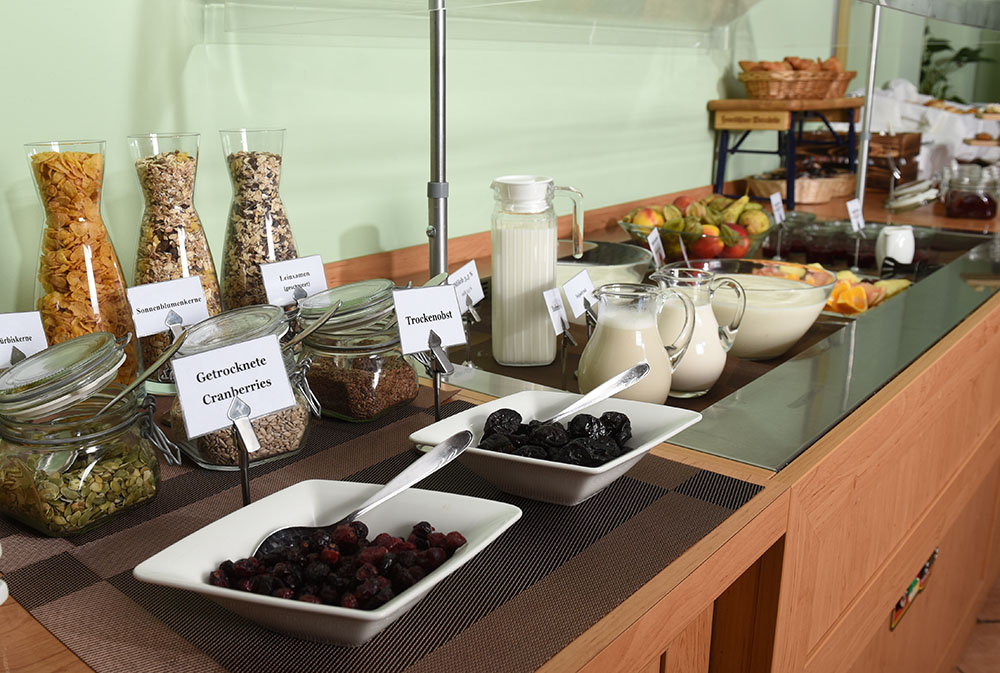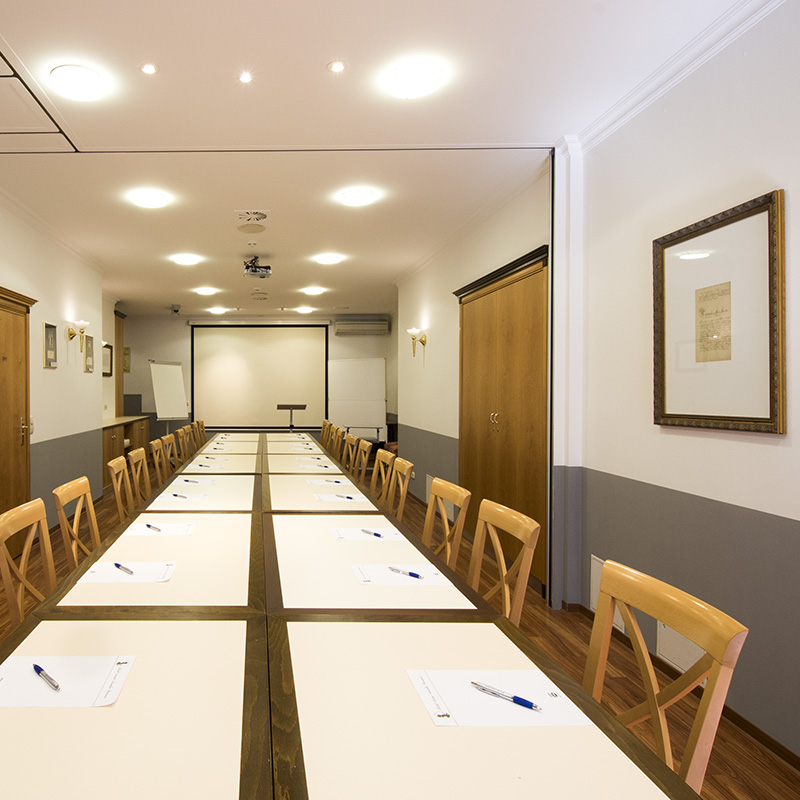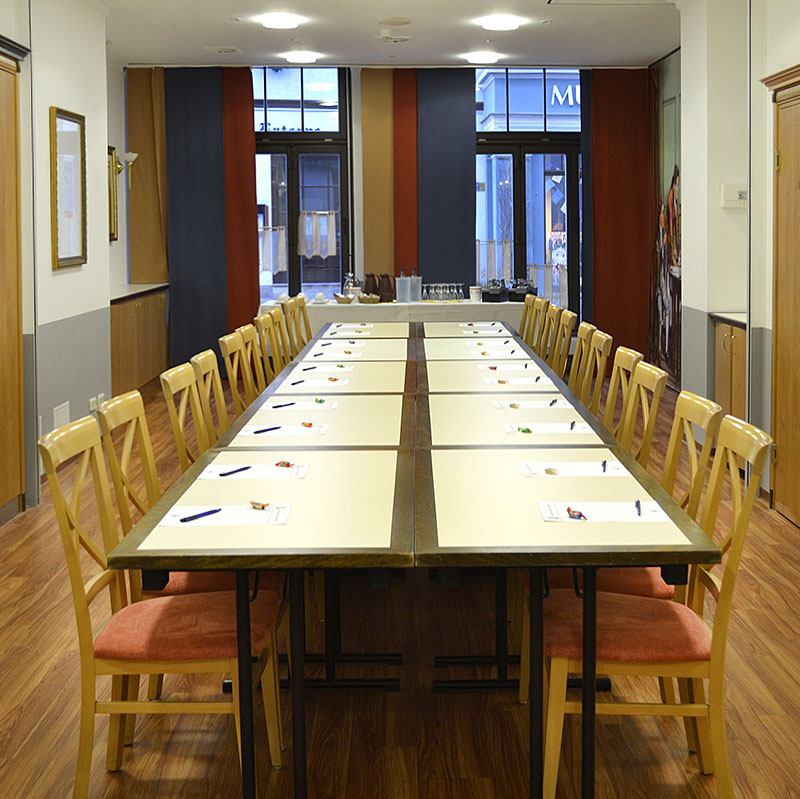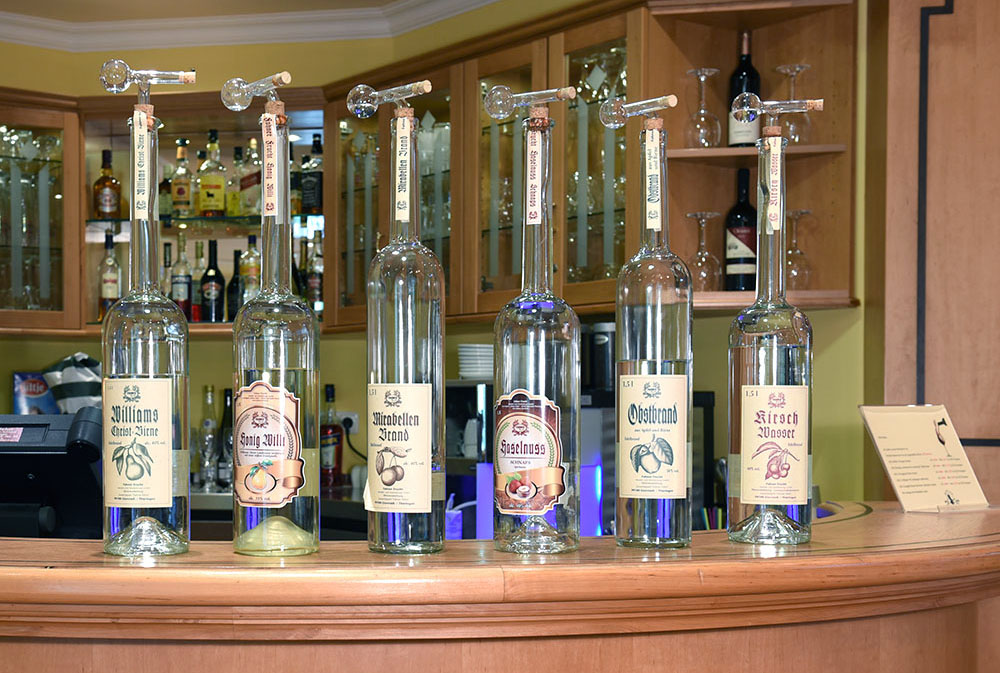In the heart of Weimar
Hotel Anna Amalia
Our family-run Hotel, located in the middle of the historic centre of Weimar, just 2 minutes walk from the DNT (German National Theater).
So the best possible starting point for sightseeing tours in this famous city of creative delights, look at Amid Culture.
Our 53 rooms leave nothing to be desired in their harmonious composition of furnishings and colours,
their timelessly Mediterranean ambience commemorating Goethe’s journey to Italy (September 1786 bis Mai 1788).
We’re making you feel right at home during your stay!
Breakfast
Start your day here in a relaxed atmosphere, in summer also on our terrace. A rich breakfast buffet with mainly regional products is the ideal starter for all your further activities. On Sundays and public holidays you are welcome to enjoy the “late riser’s breakfast” until 11.00 am.
A place for Meetings & Events
And should a meeting or a family celebration be coming up, you are always welcome here.
Our conference room serves us an excellent frame for a successful meeting of up to 30 participants.
In our restaurant a party of up to 70 people can enjoy their family celebration while delighting in a set meal or our buffet, the festivity expandable to our sunny terrace during summer. Please take note that booking of these features is solely possible in combination with room reservations. We will always find just the right solution for your requirements!
We will be happy to make you an appropriate offer.
Hotel bar with local drinks
Our hotel bar is a popular meeting place to end an eventful day. Here you enjoy specialty beverages from Thuringia.
We’ll gladly give advice on our choice of products and look forward to you visit at our house bar!
